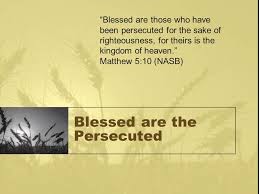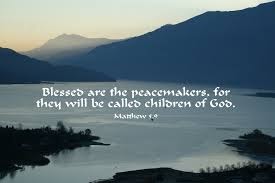YE HAVE HEARD
"Ye have heard....And ye have heard....It hath been said..." Matt. 5
The first prophets, the earliest legislators, the leaders
of young nations, the Kings, founders of cities and institutors of justice, the
wise masters, the saints, began the domination of the beast. With spoken and
sculptured word they tamed wolfish men, domesticated the men of the woods, held
barbarians in restraint, taught those bearded children, and softened the
violent, the vengeful, and the inhuman. With the gentleness of the word or the
terror of punishment (Orpheus or Draco), by promises or by threats, in the name
of the gods of high heavens or the gods under the earth, they trimmed the
nails, which immediately grew long again; put muzzles over the sharp-fanged
mouths; protected the defenseless, the victims, pilgrims, women. The old law
that is found with only a few variations in the Manava Dharmasastra, in the
Pentateuch, in the Ta-Hio, in the Avesta, in the traditions of Solon and of
Numa, in the judgmental maxims of Hesiod and the Seven Wise Men, is the first
attempt, rough, imperfect and inadequate, to mold animal like behavior into a
sketch, a beginning, a vague semblance of humanity.
This law reduced itself to a few elementary rules; not to
steal, not to kill, not to perjure, not to fornicate, not to tyrannize over
the weak, not to mistreat strangers and slaves any more than was necessary.
These are the social virtues, strictly necessary for a common life, useful to
all. The legislator contented himself with naming the most ordinary sins,
asked for a minimum of inhibition. His ideal rarely surpassed a sort of
approximate justice. But the law took for granted the dominance of evil, the
sovereignty of instinct, earlier than the law and still existing. Every instruction
implies its infraction, every rule the practice of the opposite. For
this reason the old law, the law of the first peoples, is only an insufficient
channeling of the brute force eternal and triumphant. It is a collection of
compromises and half-measures between custom and justice, between nature and
reason, between the rebellious beast and the divine model.
Men of ancient times, carnal, physical,
hearty, lusty, muscular, optimistic, sturdy, solid, hairy men with ruddy faces,
eaters of raw meat, ravishers, cattle-stealers, mutilators of their enemies,
fit to be called, like Hector the Trojan, "killers of men," strong,
zestful warriors who, having dragged by the feet their slaughtered antagonists,
refreshed themselves with fat haunches of oxen and of mutton, emptying enormous
cups of wine; these men ill-tamed, ill-subdued to the law such as we see them
in the Mahabharata, and in the Iliad, in the poem of Izdubar, and in the book
of the wars of Jehovah, such men without the fear of punishment and of God
would have been still more unrestrained and ferocious. In times when a head was
asked for an eye, an arm for a finger, and a hundred lives for a life, a law of
retaliation which asked only an eye for an eye and a life for a life was a
notable victory of generosity, appalling though it seems after the teaching of
Jesus.
But the law was more often disobeyed than observed; the
strong endured it against their will, the powerful who ought to have protected
it, evaded it; the bad violated it openly; the weak cheated it. And even if it
had been entirely obeyed by every man every day it would not have been enough
to conquer the evil perpetually boiling up, held down only for a moment,
rendered harder to enact but not impossible, condemned but not abolished. It
was a reduction of innate fierceness, not its total surgical removal. Men,
shackled but reluctant, had learned to pretend obedience, did a little good
where everyone could see them in order to be more free to do wrong secretly,
exaggerated the observance of external precepts that they might the better
betray the foundation and spirit of the law.
They had come to this point when Jesus spoke on the
Mount. He understood that the old law was doomed, drowned in the stagnant
swamps of formalism; the endless work of the education of the human race was
to begin over again, the ashes must be brushed away, the flame of original
enthusiasm must be blown into it, it must be carried through to its original
destination which is always malignancy, the changing of the soul. And for this
it was necessary to terminate the old law, the dried and burnt-out old law.
With Jesus therefore begins the new law: the old is abrogated
and declared insufficient.
He begins at every example with the words—"Ye have heard it said" . . .
and at once He substitutes for the old command, which He purifies by paradox or
actually overthrows, the new command, "But
I say unto you . . ." Matt.
5:21-22.
With these "buts" a new phase of the human education begins. It is
not the fault of Jesus if we are still groping along in the twilight of very
early dawn.












